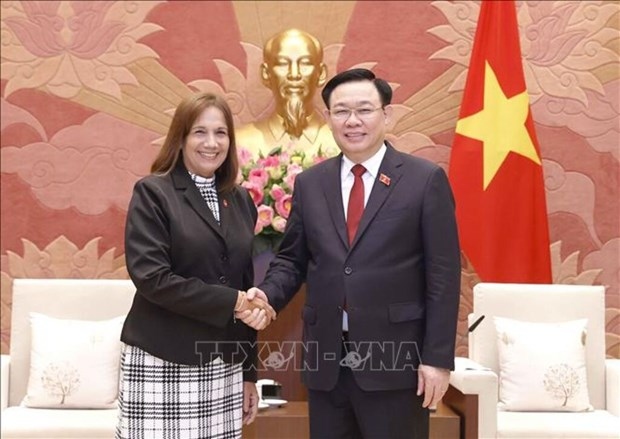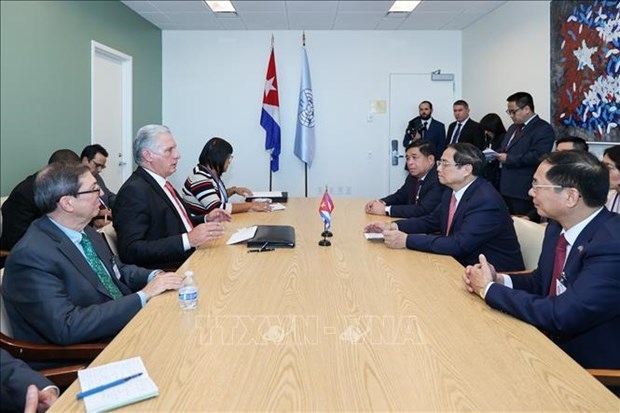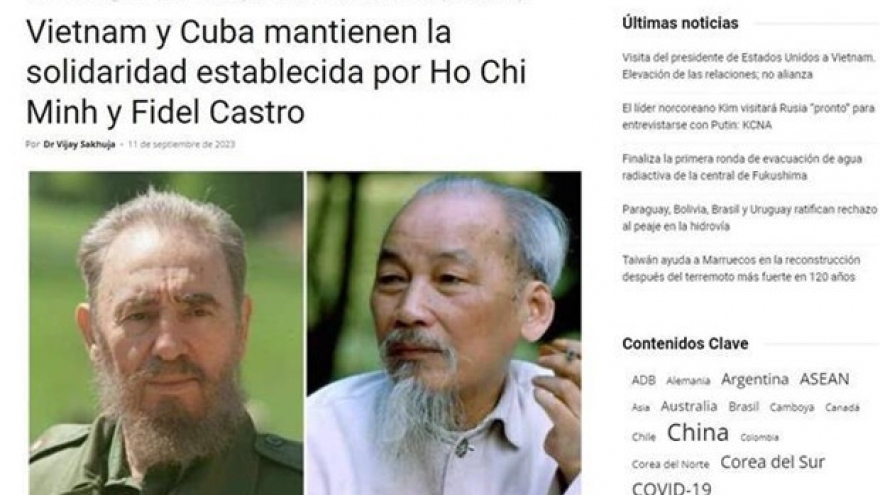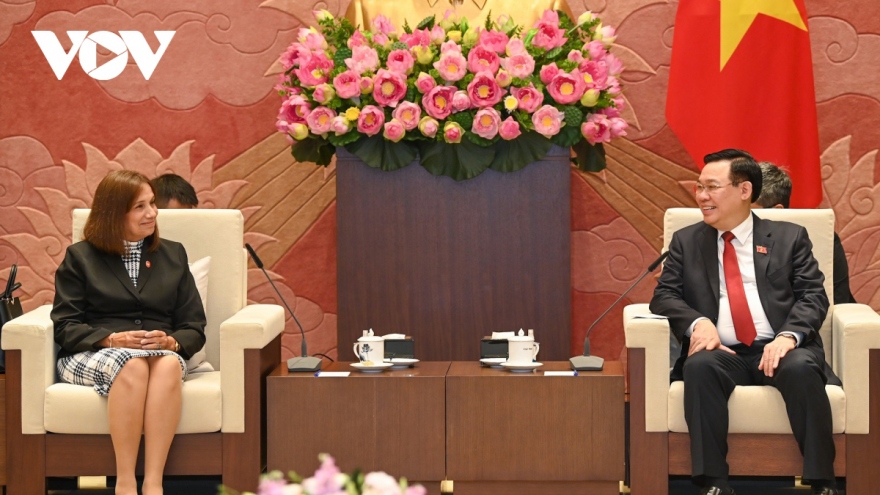Vietnam, Cuba nurture decades-long special relations
It is very rare to find such special relations as the ties between the Parties, States, and people of Vietnam and Cuba, set up by Cuban national hero Jose Marti, President Ho Chi Minh, and President Fidel Castro and nurtured by generations of leaders of both countries.

At the invitation of Vietnamese Party and State leaders, Politburo member and President of the National Assembly of People's Power of Cuba Esteban Lazo Hernandez is paying a visit to Vietnam from September 24-28, during which he will represent Cuban Party and State leaders to attend a ceremony marking 50 years since Cuban leader Fidel Castro visited the liberated zone in South Vietnam in September 1973.
This visit holds great significance and is expected to help further intensify the special friendship and solidarity between the two countries.
63-year heartfelt bonds between Vietnam, Cuba
Fifty years ago, in mid-September 1973, when the Vietnamese people’s fight for national reunification was still ongoing, Cuban Commander-in-chief Fidel Castro came to Vietnam and the frontline zone in Quang Tri with the wish of witnessing by himself the fierce battlefield and the brave struggle by the Vietnamese people, and meeting with the people and soldiers in South Vietnam.
He was the first and only foreign head of state to visit the liberated zone in South Vietnam when the war was still taking place. Given this, his historic visit became a symbol of the faithful fraternal solidarity between the two nations and their aspirations for peace, national independence, democracy, and progress in the world.

The faithful and pure solidarity and the noble spirit of internationalism of Cuba could be seen in Fidel Castro’s immortal sayings: “For Vietnam, Cuba is willing to devote its blood”, and “In peace, Cuba is willing to sweat to contribute to rebuilding Vietnam ten times bigger and more beautiful as wished by President Ho Chi Minh.”
For his part, President Ho Chi Minh also used to affirm: “Vietnam and Cuba are tens of thousands of miles apart, but the hearts of the two countries’ people are as close as brothers in a family.”
Following the late President’s teachings, generations of Vietnamese leaders and people have consistently affirmed that solidarity with and support for Cuba form the conscience and responsibility of the communists and the entire people of Vietnam.
Cuba was the first Latin American country to set up diplomatic ties with the Democratic Republic of Vietnam, now the Socialist Republic of Vietnam (December 2, 1960), and also the first in the world to recognise the National Front for the Liberation of South Vietnam and accept the Front’s permanent mission (July 1962), establish a Committee for Solidarity with South Vietnam (September 25, 1963), diplomatically recognise the National Front for the Liberation of South Vietnam (December 20, 1965), and send an ambassador to the National Liberation Front Central Committee (March 1969).
During the most trying times of Vietnam’s fight for national liberation, the Cuban Party, State, and people always provided extremely valuable spiritual and material support and assistance for the Southeast Asian country.
For the last more than 60 years, despite ups and downs in the global situation, the solidarity and fraternity between the two countries have been increasingly reinforced and developed in multiple areas.
Leaders of the two Parties, States, and Governments have frequently held mutual visits to help effectively bolster the bilateral relations and expand ties among their ministries, sectors, and in different fields.
The sound political - diplomatic relations have also created an impetus for economic and trade ties. Annual bilateral trade has reached US$250 - 300 million in recent years.
A bilateral trade agreement was signed in 2018 and took effect on April 1, 2020, helping foster trade ties. The two countries expect bilateral trade will hit US$500 million by 2025.
Vietnam is currently the biggest Asian-Pacific investor in Cuba. Many major enterprises of Vietnam have paid attention to the Cuban market and come to explore cooperation and investment opportunities there.
Regarding international and regional issues of common concern, the two sides agreed to continue consulting, coordinating closely, and supporting each other at international organisations and multilateral forums. They also share the stance on peacefully settling disputes on the basis of international law and the UN Charter.
Further deepening the Vietnam - Cuba special friendship
In 2023, the two countries have been organising various activities in celebration of their big anniversaries, including the 60th founding anniversary of the Cuban Committee for Solidarity with South Vietnam (September 25, 1963) – the predecessor of the Cuba - Vietnam Friendship Association, and 50 years since Fidel Castro first visited Vietnam and the liberated zone in South Vietnam (September 1973).
In Vietnam, those activities include the upcoming ceremony marking 50 years since Fidel Castro’s visit, and a photo exhibition on bilateral relations opened on September 12 by the Cuban Embassy. In Cuba, First Secretary of the Communist Party of Cuba Central Committee and President of Cuba Miguel Diaz-Canel also chaired a ceremony on September 12 to celebrate the 50th anniversary of Fidel Castro’s visit.
Most recently, Vietnamese Prime Minister Pham Minh Chinh met with First Secretary of the Communist Party of Cuba Central Committee and President of Cuba Miguel Diaz-Canel on September 20, on the sidelines of a high-level general debate of the UN General Assembly in New York. They affirmed efforts to successfully organise celebratory activities, especially during the Vietnam visit by President of the National Assembly of People's Power of Cuba Esteban Lazo Hernandez.
It could be said that over the last more than six decades, despite complex and unpredictable developments in the international and regional situation, the two countries’ Parties, States, and people have stayed persistent and determined to bring their cooperation to a new height on the basis of their traditional ties that have become a special model in international relations.


